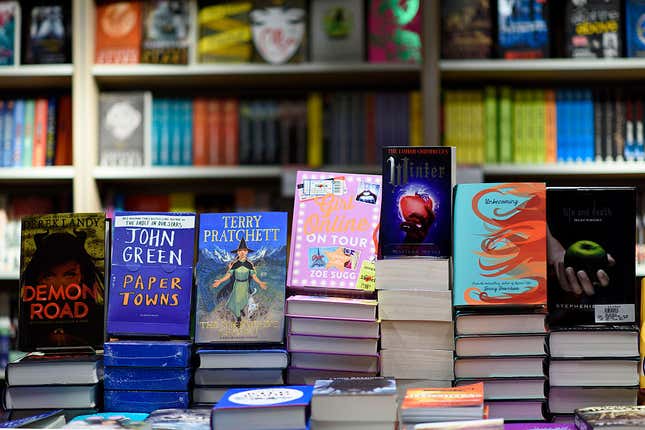

Yesterday, New York Times bestselling authors Jennifer Weiner and Jodi Picoult were among those to tweet outsized outrage that a single recent college graduate expressed distaste for author Sarah Dessen’s YA novels in a local news item out of Aberdeen, South Dakota about the selection process for Northern State University’s Common Read program.
Northern State University is a small school with an enrollment of just 1,500 students, and Brooke Nelson joined the selection committee when she was a junior because she believed Dessen’s books were “fine for teen girls, but definitely not up to the level of Common Read,” according to the local paper. She said she joined the committee to stop them from selecting Dessen’s book for the list, but the article gave no indication that hers was the deciding vote or even a major factor in the selection process.
That did not stop Dessen, Weiner, Picoult, and other authors from interpreting the quote as an attack on all teen girls’ stories, not just a handful of books about teens written by an adult woman. Picoult tweeted that “To not speak up about this incident isn’t just demeaning to Sarah. It’s demeaning to women, period. Want to fight the patriarchy? Start by reminding everyone that stories about women are worthy, that they matter, that they are necessary.”
But the “incident” was the opinion of one young woman, and the committee ultimately chose Just Mercy, a book about injustices in the court system by Bryan Stevenson, a black man written from personal experience. In the 10 years Northern State’s Common Read program has been choosing books, they have chosen a relatively diverse range: five of the books were written by women, three of those five by women of color. Those numbers could be better, but the argument by Dessen, Weiner, and Picoult doesn’t seem to be that this one very small college isn’t including enough books by women. Nor does it seem to be that no one takes their books seriously, which is not true, judging by the thousands of famous authors and fans alike who rushed to Dessen’s defense.
-

-

-

-

-

-

-

-

-

-

-

-

-

-

-

-

-

-

-

-

-

-

-

-

-

-

-

-

-

-

-

-

-

-

-

-

-

-

-

-








































